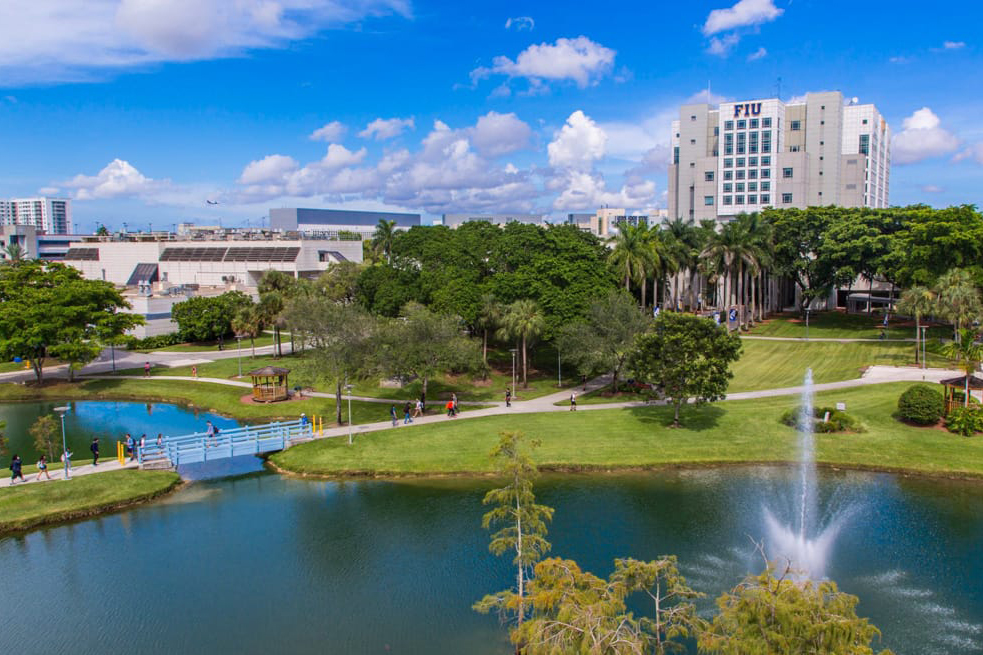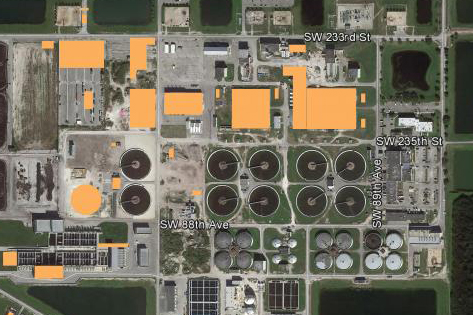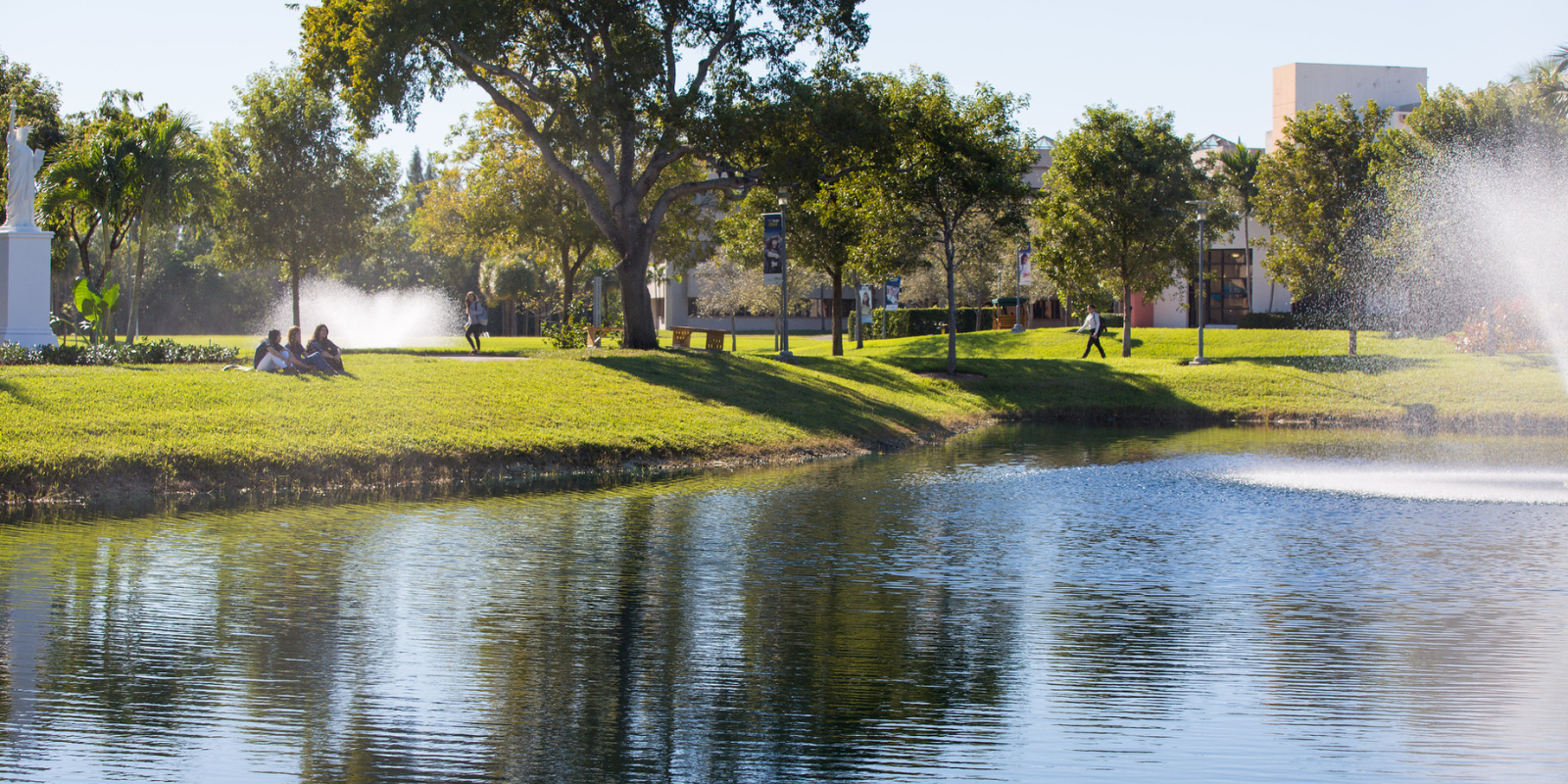
Living Sustainably as a University Community
Florida International University is a global leader in research and advocacy for Clean Water and Sanitation. With one campus located along the edge of the iconic Florida Everglades and another along Miami’s ecologically and economically essential Biscayne Bay, we also recognize the need to live sustainably as a university community.
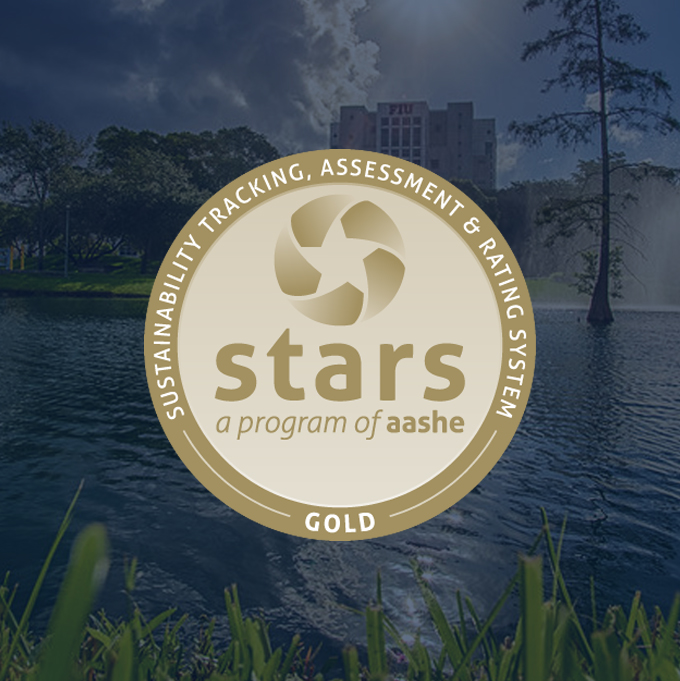
FIU Earns STARS Gold
Florida International University has earned a Gold Rating from the Association for the Advancement of Sustainability in Higher Education. University-wide initiatives to foster more sustainable campuses helped elevate FIU's rating, which previously was silver. The rating is based on criteria established by AASHE’s Sustainability Tracking, Assessment & Rating System (STARS), a sustainability benchmarking system for colleges and universities that addresses the environmental, social and economic aspects of sustainability. The Gold Rating was announced September 11, 2024.
Water Usage and Care at FIU
In Fiscal Year 2021-2022, FIU used 865,851 cubic meters of treated/extracted water for consumption, sanitation and university operations to support a total population of 76,684 students, faculty and staff.
Water Extraction and Measurements
Domestic water is supplied by Miami-Dade County Water and Sewer Department which uses Sustainable Water Extraction Technologies that are safe and compatible with natural ecosystems. The county's techniques comply with the land-use and environmental protection policies of the Miami-Dade County Comprehensive Development Master Plan, the Strategic Regional Policy Plan for South Florida, and the State Comprehensive Plan. Learn more about Miami-Dade County Sustainable Water Extraction Techniques
For measurements, Miami-Dade County utilizes a metering system. Irrigation water from campus lakes is measured through flow meters. More information and measurements are available online in FIU's AASHE STARS report.
Wastewater
FIU wastewater is collected through internal pipelines and lift stations. Upon collection, the wastewater is discharged to Miami-Dade County’s South District Wastewater Treatment Plant, a contained and regulated treatment site. Miami-Dade County’s wastewater management practices include the use of reclaimed water to help preserve the Biscayne Aquifer. More information is available online in FIU's AASHE STARS report. Miami-Dade County is currently performing a reclaimed water feasibility study in addition to continued implementation of existing reuse projects and commitments to expand its water reuse program.
FIU's Environmental Management Policy requires the university community to comply with all environmental laws and regulations, including those related to wastewater. Read the FIU policy
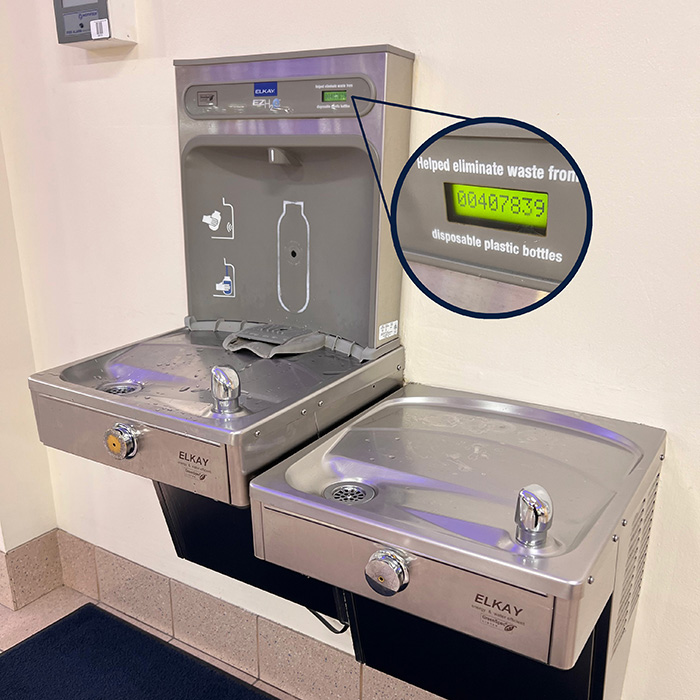
Free Drinking Water
FIU ensures all students, faculty, staff and guests have access to free drinking water with drinking fountains located on every floor in every building on our campuses. Many feature water-refill stations for reusable water bottles. These stations even provide real-time data on the amount of plastic waste prevented with each fill-up and information about energy and water efficiency.
Regulations, Policies and Protection Strategies
Florida International University requires all employees to comply with all federal, state and local laws and regulations as well as university policies including those related to water usage and care.
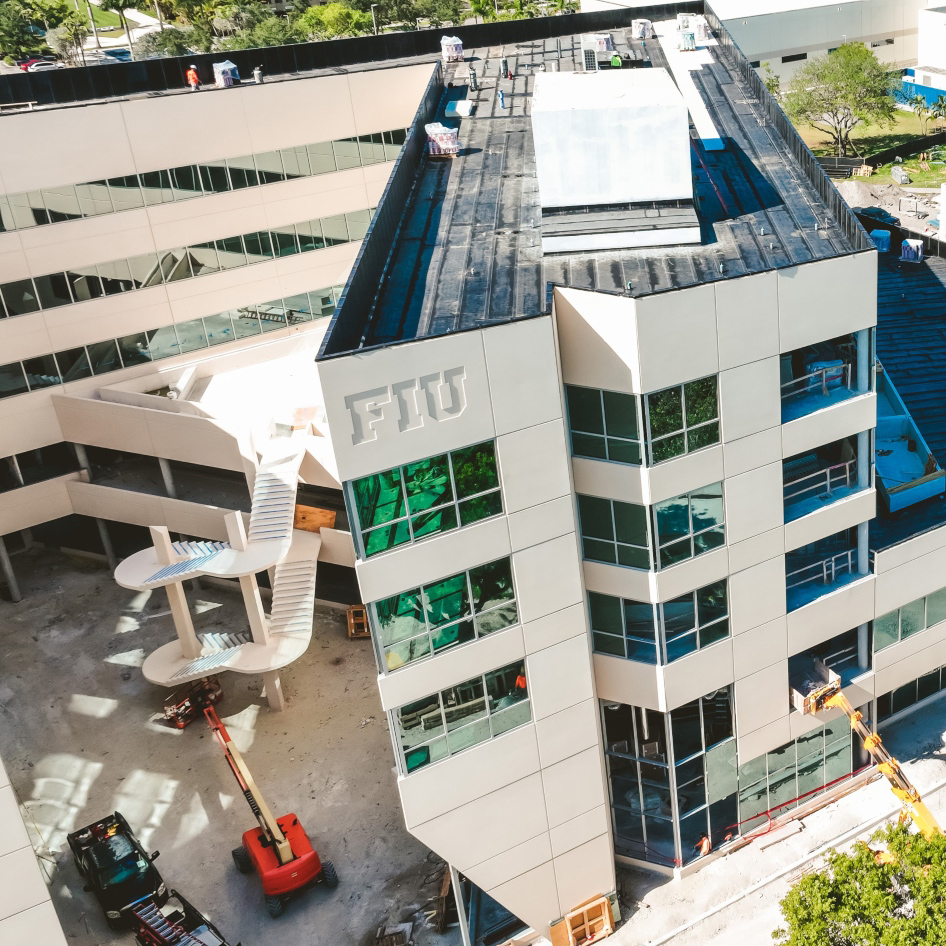
New Building Standards
FIU's Building Policy and Architectural Design Guidelines require all new construction to be built to a minimum of LEED Silver standards. A variety of water minimization techniques are applied including condensate reclamation and low-flow fixtures. University-wide development must comply with water-use efficiency techniques for indoor water-use in accordance with Sections 8-31, 32-84 and 8A-381 of the Code of Miami-Dade County.
The LEED process addresses water run-off during construction in a prerequisite credit that aims to reduce pollution from construction by controlling soil erosion, waterway sedimentation and airborne dust.
FIU adheres to the National Pollutant Discharge Elimination System (NPDES). This requires development of EPA Stormwater Pollution Prevention Plan for construction sites greater than 1 acre. FIU adheres to the Florida Department of Environmental Protection, which is responsible for issuing permits and performing compliance and enforcement activities as the NPDES permitting authority in Florida.
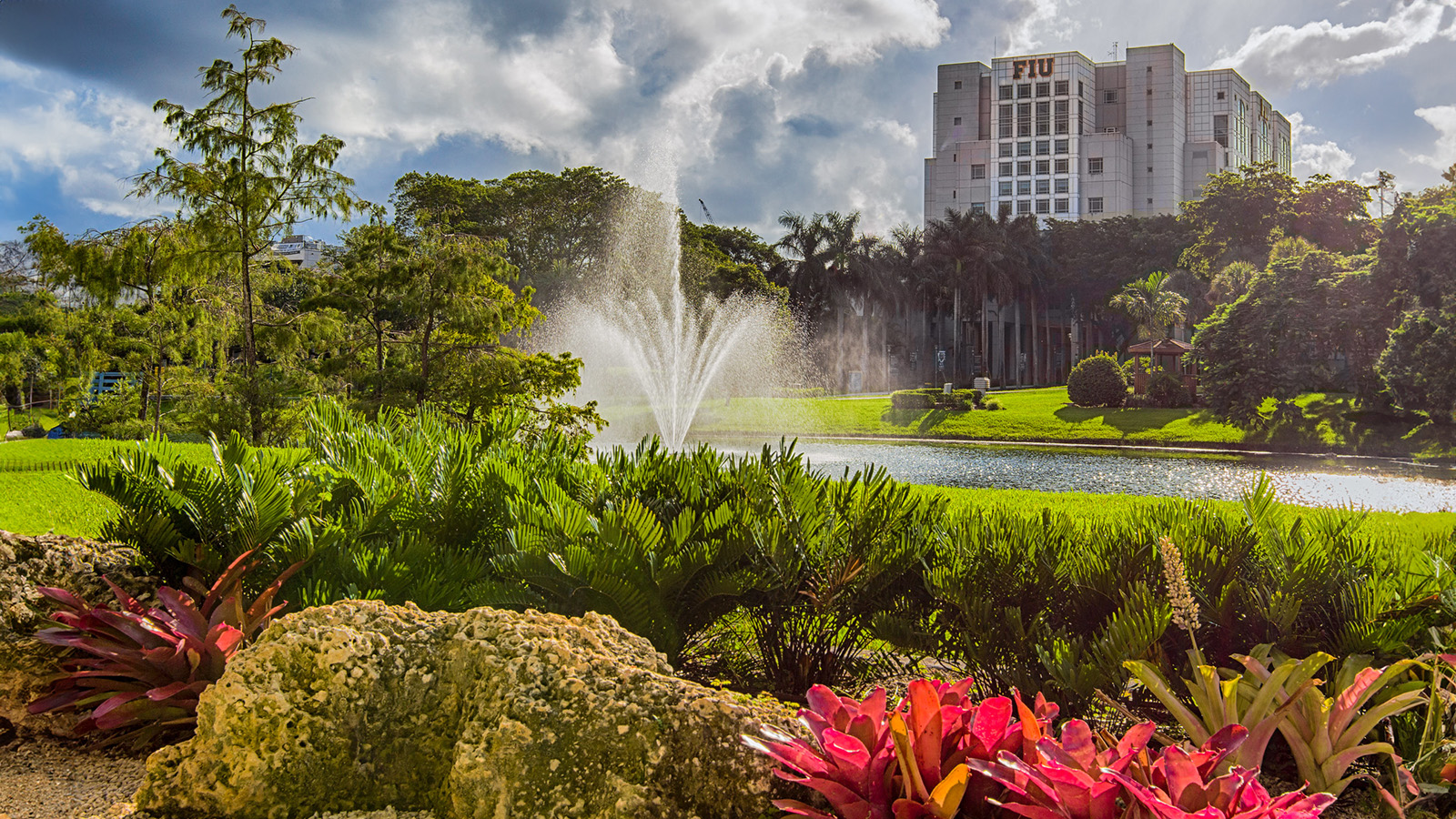
Landscaping and Water Reuse
FIU Facilities Management oversees landscaping and irrigation operations on all FIU campuses. They strategically use plants on our campuses that limit water use, as per the university's Landscape and Irrigation Manual, which is available online. This includes drought-tolerant plants as well as native plants, which require less maintenance and minimize the need for fertilizers and pesticides. Per the Conservation Element in the campus master plan, FIU’s goal is not to use any potable water to irrigate campus grounds.
At FIU's Biscayne Bay Campus, treated graywater is used to irrigate the grounds. Currently, Miami-Dade Water and Sewer Department maintains a water reuse distribution line to BBC with a capacity of 1.5 million gallons per day.
Retention ponds capture rainwater and run-off that is used for irrigation on FIU's Modesto A. Maidique Campus. All irrigation systems are equipped with flow meters to measure water usage and rain sensors to ensure pumps only activate when needed.
Did you know?
FIU offers a Graduate Certificate in Water, Environment and Development Studies, providing a multidisciplinary education in the occurrence, characteristics and management of water resources.
